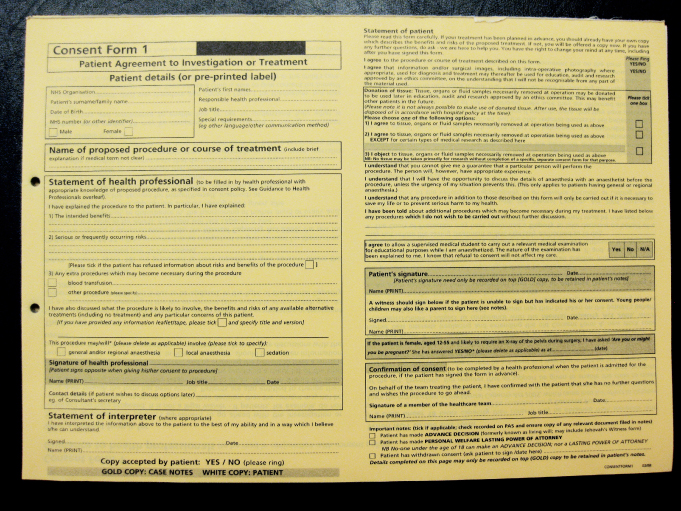Clinical Governance
The Chief Executive of a Trust now carries responsibility for the quality of medical care. Every Trust must have mechanisms to ensure the quality of care, identify faults and improve the service, and report annually on this. ‘Clinical governance’ has been developed, ostensibly to maximize safety, and is described as ‘a framework through which NHS organizations are accountable for continuously improving the quality of their services and safeguarding high standards of care by creating an environment in which excellence in clinical care will flourish’. In English, this means ‘do a good job and prove it’.
Clinical governance incorporates the implementation of evidence-based and ‘effective’ practice, and audit of this. Evidence-based guidelines for the management of common clinical situations exist, including from the National Institute for Clinical Excellence (NICE: www.nice.org.uk), although these cannot cover the management of every clinical situation. It is easier to defend clinical practice if guidelines have been followed; equally, where a clear deviation has occurred, negligence is more likely to be alleged unless a clear reason for the deviation in practice is documented.
Risk Management
Risk management aims to reduce risk of patient harm. Each NHS Trust has an incident reporting system to report adverse incidents; these range from third-degree tears to maternal death. The organization is expected to review, learn and, if necessary, change clinical practice or systems to try to prevent these from occurring again. CNST assessors audit NHS Trusts annually for evidence of working practices, protocols and guidelines that show good risk management systems (www.nhsla.com/RiskManagement). In addition, the Healthcare Commission visits and assesses Trusts, providing scores on aspects such as use of resources, and ‘quality of services’. The latter assesses a mass of criteria including cleanliness and is a poor measure of quality.
Complaints Procedure
Successful local resolution of a complaint can reduce the likelihood of litigation, although a complaint may be a precursor to litigation. The NHS complaints procedure specifies time limits for the acknowledgement, investigation and resolution of a complaint (www.legislation.gov.uk/uksi/2009/309/contents/made). Independent advice and representation from the Independent Complaints Advocacy Service (ICAS) is available. If unsatisfied with the response, a seldom-used escalation is available. A complainant may also make a complaint about an individual to their regulatory body, e.g. the General Medical Council (GMC).
Confidentiality
The doctor has a moral, professional, contractual and legal duty to maintain patient confidentiality. No details can be disclosed to a third party, including a relative, without the patient’s consent. The Data Protection Act 1998 extends this duty to ensuring adequate protection and storage of information, such as patient records and communications. Confidentiality can be breached only in exceptional circumstances where the health and safety of others would otherwise be at serious risk. For example, if a doctor knew that their patient was at risk from an HIV-positive partner who refused to disclose their disease status, the law would support them in breaking this confidentiality.
Regulation of Fertility Treatment
Stay updated, free articles. Join our Telegram channel

Full access? Get Clinical Tree



